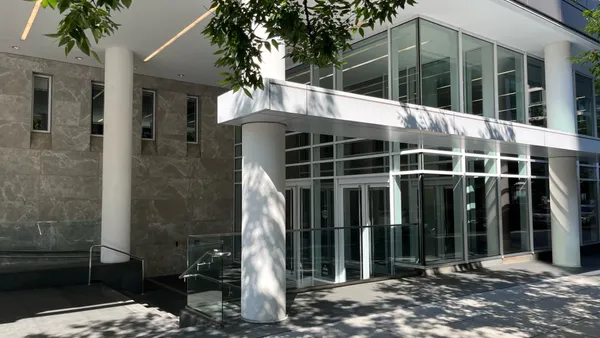Dive Brief:
- The Justice Department will follow its usual practice of selecting the best qualified person for the role of compliance monitor at Boeing, and has “no interest in selecting a candidate who does not have the Court’s full confidence and support,” the government told a federal judge in asking him to approve a proposed settlement with the aerospace giant.
- Boeing said in its brief that diversity, equity and inclusion principles “would not and will not play any part” in the company’s “very limited role” in choosing a compliance monitor. “Boeing will be solely focused on the capabilities, professional background, and experience of the candidates,” it wrote.
- U.S. District Judge Reed O’Connor requested the briefs by Oct. 25 and said he would decide shortly after whether to approve the agreement in which Boeing will plead guilty to a felony charge of defrauding the U.S.
Dive Insight:
O’Connor, nominated to the bench by President George W. Bush, had focused his attention on the DEI aspect of the proposed agreement. Prosecutors previously said that a Boeing monitor would be chosen “in keeping with the Department’s commitment to diversity and inclusion,” a standard line that has been included in cases with compliance monitors since 2018.
If the court approves the deal, the DOJ will select six finalists for the position, and Boeing will be able to strike one of those after interviewing all six, if it wants to do so. The department would then submit its finalist candidates to a committee for review. That committee will then send its candidate slate to the Office of the Deputy Attorney General for a final selection.
The independent monitor is a key provision of the deal, in which Boeing would plead guilty to a criminal charge of defrauding the U.S. and pay a $243.6 million fine and invest more than $450 million in compliance and safety programs during a three-year probation period.
The proposed settlement stems from a 2021 deferred prosecution agreement between Boeing and the government related to the crashes of two 737 Max 8 jets, which occurred in October 2018 and March 2019, killing 346 people. The Justice Department concluded earlier this year – following the loss of a cabin section on an Alaska Airlines 737 Max during flight – that Boeing had breached the 2021 agreement.
Families of some of the crash victims are asking O’Connor to reject the settlement as too lenient for Boeing, arguing that the government should have pursued stronger criminal charges.
The monitor candidate must have prior experience in such a role or expertise in internal monitoring and compliance programs, according to the department’s minimum guidelines for candidates. The person must also be an expert with regard to U.S. fraud laws and anti-fraud compliance issues.
The government said candidates who want the role will face “a rigorous, individualized assessment of their qualifications to meet the challenges specific to the Boeing monitorship; and will result in the selection of the candidate whose unique skills the Court and the public can be confident will best position the monitorship for success and whose selection was based entirely on merit.”
The department’s monitor language from 2018 was not a policy change, the DOJ said, “but rather a principle that has always governed the process: that selection of a monitor must be based solely on merit, from the broadest possible pool of qualified candidates.”
For its part, Boeing said its “published aspirations” on diversity and inclusion do not compromise on merit or talent. The Virginia-based company uses “a merit-based performance system with procedures aimed at encouraging an equality of opportunity, not of outcomes,” Boeing told O’Connor, who sits in Fort Worth, Texas.
Boeing also said it does not use racial quotas in hiring or promotion decisions.
“An inclusive culture fosters a workplace where employees feel free to speak up and raise concerns—including concerns related to quality and safety—without fear of retaliation,” the airplane and defense company said.











